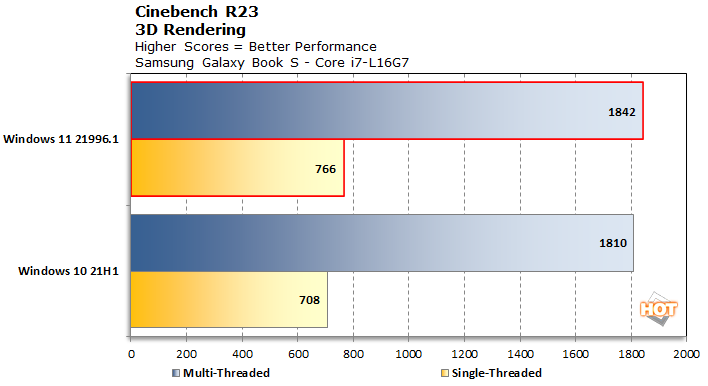It’s no secret that the Windows scheduler is not exactly a top solution. It’s also no secret that when Microsoft decides to make some changes, it’s usually related to Intel processors. It is no different now. According to HotHardware, Windows 11 is increasing performance on Intel’s ultra-mobile processor Lakefieldwhich combines one large core Sunny Cove (you know from Ice Lake) and four small nuclei of Atoms Tremont.
When they were released, according to some tests, the single-core performance (which was to be provided by a large core) was Sunny Cove) up to the Atom / Celeron level, so there were opinions as to whether the Windows scheduler in these cases did not actually delegate single-core tasks to any of the four Atoms.
Windows 11, which was tested by Lakefield on the HotHardware website, found that the operating system understands the hybrid processor better than Windows 10. In the Geekbench test, it exits 2.3% faster in single-core workloads and even 5.5% faster in multi-core loads .
In Cinebench R23, the lead is even higher and single-core Lakefieldu under Windows 11 it performs 8.2% better and multicore 1.8% better. The shift is obvious, however, in a single-core load it is not such that we can accept the opinion that under Windows 10 a single-core load was running on the Atom (while under Windows 11 not). Rather, it appears that in tests that are more energy-intensive, the strokes of the large nucleus must be strongly modified to fit into the low TDP, and with that performance is limited – sometimes to a level close to the Atom.
However, up to 5.5% shift in one test and up to 8.2% shift in the other is a nice improvement for users Lakefieldem equipped mini-notebooks / tablets will certainly come in handy.
–


:strip_exif()/i/1271168008.jpeg?f=fpa)
